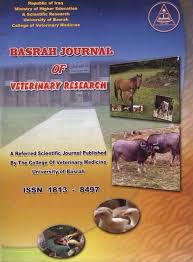Abstract
NF-B (Nuclear Factor Kappa B) is a crucial transcription factor that is essential for host survival during pathogen infection in animal and human. Therefore, it has been a main goal for numerous pathogens to modify cellular NF-κB activity to create an environment conducive to their survival within the host. In the present study, the cell line type (SW480) was used as a model of colon cancer cells. Subsequently and through using western blotting, the effect of ORF3 protein on TNF- induced NF-B activation was observed by detecting the NF-B p65 subunit in the nuclear and cytoplasmic extracts. The results appeared that p65 translocated into the nucleus when stimulated by TNF-α in the control groups (GFP and mock cells). However, weak nuclear translocation was seen in ORF3-expressing cells. Moreover, the experiment revealed the ORF3 protein in SW480 inhibited the nuclear translocation of the p65 protein. After TNF-α stimulation, the difference in the band intensity of NF-κB protein in the nuclear fraction of control groups cells from each GFP group (A3) and mock cells (B3) was significantly higher compared with nuclear extract from Orf3expressed cells (C3 , P = 0.0001). In conclusion, the current study was confirmed that HEV ORF3 protein inhibits the activity of cellular NF-κB in human colon cancer cells.
Keywords
activity
Hepatitis E virus
HEV
Abstract
العامل النووي كابا ب (NF-κB) هو من العوامل الضرورية والحرجة لبقاء المضيف أثناء العدوى الممرضة في الحيوانات والإنسان. وبسبب ذلك فان العديد من مسببات الامراض تعمل في الاساس على تعديل نشاط NF-κB الخلوي لإنشاء بيئة مواتية لبقائها داخل المضيف. في الدراسة الحالية تم استخدام الخلايا (SW480) كنموذج دراسي لخلايا سرطان القولون. ومن خلال استخدام لطخة ويسترن، لوحظ تأثير بروتين ORF3 على تنشيط NF-B الناجم عن TNF من خلال اكتشاف الوحدة الفرعية NF-B p65 في المستخلصات النووية والسيتوبلازمية .واظهرت النتائج بان p65ينتقل إلى النواة عند تحفيزه بواسطة TNF-α في مجموعات السيطرة (GFP والخلايا الوهمية) بالرغم من وجود انتقال نووي ضعيف في الخلايا المعبرة عن ORF3. كما بينت نتائج التجربة بان بروتين ORF3 في SW480قد منع النقل النووي لبروتين. p65وبعد تحفيز TNF-α ، كان الفرق في شدة النطاق لبروتين NF-κB في الجزء النووي من خلايا مجموعات السيطرة في المجموعة GFP (A3) والخلايا الوهمية (B3) أعلى بكثير مقارنة بالمستخلص النووي في الخلايا المعبرة عن ORF3(P = 0.0001, C3)). علية يمكن الاستنتاج أن إنتاج بروتين الخاص بشفرة للتنبؤ بإطار القراءة المفتوح3والمعروفة ب (ORF3) في خلايا سرطان القولون البشري يثبط نشاط NF-κB الخلوي في خلايا سرطان القولون البشري.
